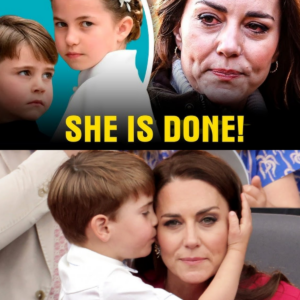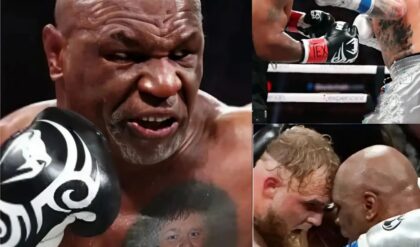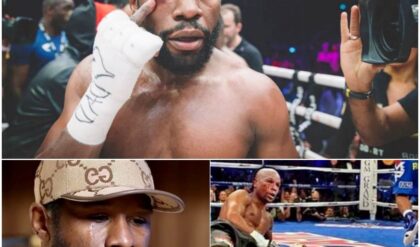The Spotlight on Jay-Z, Diddy, and Allegations of Abuse: A Closer Look at the Complexities Behind the Headlines
The intersection of celebrity, power, and legal battles continues to dominate the news, especially when it involves high-profile figures such as Jay-Z (Shawn Carter) and Sean “Diddy” Combs. Recent controversies have brought to light allegations, legal disputes, and questions about the behavior of these figures, with much of the conversation surrounding claims of abuse and the defense strategies employed by those accused. In particular, Jay-Z’s vehement response to accusations involving his family and business partner Diddy, as well as the treatment of alleged victims, has sparked debates that delve deep into issues of power, influence, and accountability in the entertainment industry.

One of the central figures in this story is attorney Tony Busby, who represents over 100 alleged victims of Diddy’s alleged abuse. Recently, Jay-Z came out swinging, publicly denouncing Busby and calling him an “ambulance chaser” in a cheap suit. In an aggressive defense, Jay-Z also labeled the accusations as heinous and suggested that they were part of a larger blackmail scheme. His firm stance on the matter, especially his direct attacks on the lawyer representing these victims, has drawn mixed reactions. On one hand, Jay-Z has tried to discredit the claims, while on the other, his response raises questions about the deeper layers of the accusations against him and his associates.
This situation escalated further when Jay-Z connected conspiracy theorists to the allegations against Diddy. His claims suggested that these allegations were being used as a weapon against powerful individuals in the industry, linking them to a broader narrative of conspiracy that is often seen in high-profile cases. However, as Dr. Bethany Marshall, a renowned psychoanalyst, pointed out, accusations of conspiracy tend to undermine the credibility of the speaker. Marshall reflected on how such statements could distract from the real issue—the harm done to the victims—and further fuel public skepticism regarding the allegations.

The psychological aspect of this situation is not lost on Marshall, who noted that Jay-Z’s aggressive stance might actually harm the perception of the victims. “What if I was a 13-year-old girl, and I felt this kind of aggression when I was drugged?” she asked, highlighting how Jay-Z’s behavior could create fear and doubt among the public about the true nature of the alleged incidents. His efforts to defend his family, including his children, and paint the attorney as someone out to exploit the situation, may ultimately raise questions about what he is really trying to protect—his own reputation or the truth.
The role of women in these narratives also raises significant points. Marshall emphasized that when women marry powerful men, they often unknowingly become entangled in the legal and social consequences of their partner’s actions. She argued that even if the woman is not directly involved in criminal activities, the scrutiny and reputational damage can affect her life. Marshall referenced Beyoncé’s marriage to Jay-Z, suggesting that while love may have been a driving force, the power dynamics within the music industry and Jay-Z’s influence may have shaped their relationship.

The timing of this conversation also raises questions. Beyoncé, at the time of her marriage to Jay-Z, was an emerging star. While she was a part of Destiny’s Child, she had not yet achieved the level of solo success she enjoys today. Marshall hinted at the idea that Jay-Z may have played a role in shaping Beyoncé’s career, using his position of power in the music industry to further her success. This narrative brings to light the intersection of personal relationships and business arrangements within the entertainment industry, where the lines between love, power, and opportunity can become blurred.
Of course, it is essential to return to the core of the issue—the allegations themselves. A central part of the conversation is the claim made by a 13-year-old girl who alleges being sexually assaulted. The claim has sparked a firestorm of debate, with the defense focusing not only on the conspiracy theories surrounding the case but also on how Jay-Z, in particular, has chosen to handle the situation. Notably, Jay-Z has never explicitly denied the allegations of sexual misconduct. He vehemently defends himself by attacking the messenger—the lawyer and the women making the claims—but he has not directly refuted the accusations against him, leading many to question the true nature of his involvement.
The focus on legalities and public perception is also evident in discussions about the contractual elements of the case. One of the most troubling aspects of the allegations is the claim that the young girl allegedly signed a non-disclosure agreement (NDA). Critics point out that a child, particularly a 13-year-old, cannot legally sign such an agreement, adding another layer of complexity to the case. Where are the witnesses? Where are the drivers who allegedly dropped the victim off at Diddy’s residence? Could these records be traced to provide more concrete evidence? These are some of the questions that need to be answered in order to determine the veracity of the accusations and to ensure that justice is served.

As the case continues to unfold, it is clear that the legal and moral ramifications for these public figures will extend far beyond the courtroom. The way in which Jay-Z and Diddy have responded—both publicly and privately—speaks volumes about their understanding of power and influence in the public sphere. Their actions, particularly the way they handle the legal fallout from these allegations, will likely have a lasting impact on their reputations and the public’s perception of them as role models.
In addition to the serious nature of the allegations, the discussions about the lifestyle of those accused of misconduct also raise ethical questions. The public is now learning about the conditions of life in detention for individuals like Diddy, who is facing serious charges. News reports revealed that he will be spending his first Christmas in jail at the Metropolitan Detention Center in Brooklyn, where he will have access to a holiday meal featuring baked Cornish hen, macaroni and cheese, cranberry sauce, and a holiday dessert. The question that arises here is: How should the justice system handle the basic needs of inmates, especially those who are accused of heinous crimes but have not yet been convicted? Should they be granted such privileges, or should the focus remain on punishment?
In contrast, advocates for victims and survivors of abuse argue that the resources spent on providing special meals and privileges to individuals like Diddy should be redirected toward supporting the victims. Survivors of human trafficking and other forms of exploitation often face a much harsher reality, and there is a growing call to shift the attention away from the comfort of the accused and towards the needs of those who have been harmed. One advocate put it simply: “Why should Diddy receive such treatment when survivors of exploitation and abuse go without?” This stark contrast highlights the disparity in how justice is applied and the uneven treatment that survivors and perpetrators receive.
As the legal battle continues, it is essential for society to reflect on the broader implications of these cases. While the rich and powerful seem to receive preferential treatment, it is the voices of the survivors—the real victims—who deserve our unwavering attention and support. Ultimately, the pursuit of justice should not be about how comfortable someone is while awaiting trial, but about holding individuals accountable for their actions and ensuring that victims have the resources and support they need to heal and rebuild their lives.
In conclusion, the ongoing legal struggles of Jay-Z, Diddy, and others involved in similar cases illustrate the complex and often troubling intersection of fame, power, and justice. While celebrities may attempt to discredit victims, deflect responsibility, and distract from their alleged crimes, it is the survivors who must remain at the center of the conversation. Society must continue to ask difficult questions, demand accountability, and stand firm in support of those who have been harmed. As the case moves forward, it will be important to watch how the legal process unfolds, ensuring that justice is served, not just for the powerful, but for the most vulnerable members of society.
News
Boris Becker savages ‘hothead’ Australian Open star who ‘isn’t good for the tournament’
Boris Becker is not a fan of one Australian Open star’s antics. Boris Becker was not happy with Daniil Medvedev. (Image: Getty.) Boris Becker has slammed “hothead” Daniil Medvedev after the Russian star smashed a camera in the net during his Australian Open first-round match. Medvedev…
30 MINUTES AGO! Kate Middleton & Prince William In TEARS After Princess Charlotte Unexpected Transformation: “No one could save her.”
Kate Middleton & Prince William In Tears After Princess Charlotte’s Unexpected Transformation Parenthood often brings tears, whether of joy, pride, or even nostalgia, as children grow up. For Kate Middleton and Prince William, the journey through their children’s milestones has…
Tennis icon worth £20m hits back at nepotism comments after son’s Australian Open exit
Lleyton Hewitt has defended his son Cruz, 16, after online comments suggested he was involved in the Australian Open qualifiers due to his famous father. Lleyton Hewitt has defended his son Cruz (Image: Getty) Aussie tennis icon Lleyton Hewitt has hit back at…
Australian Open star breaks down in tears after being ‘rattled’ by rival
Home favourite Kimberly Birrell broke down in tears after her opening match. Kimberly Birrell said she didn’t want to cry as she burst into tears following her defeat (Image: Australian Open ) An Australian Open home favourite broke down in tears after being…
LOU KNEW People are all saying the same thing as rare clip of Prince Louis’ ‘shy’ voice is shared by royal fan he met
HE may only be six, but Prince Louis has already got a legion of royal fans thanks to his adorable moments caught on camera. Now people are gushing over the adorable royal’s “shy” voice as he met a well-wisher at…
Daniil Medvedev tells Australian Open rival how to get ‘money and girls’ after thriller
Daniil Medvedev had an unusual message for his Australian Open rival after surviving a five-set marathon. Daniil Medvedev told his Australian Open opponent that he could get money and girls (Image: Eurosport) Daniil Medvedev sent a strange message to Kasidit Samrej after…
End of content
No more pages to load











